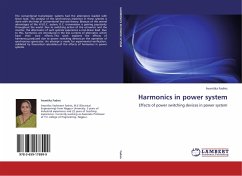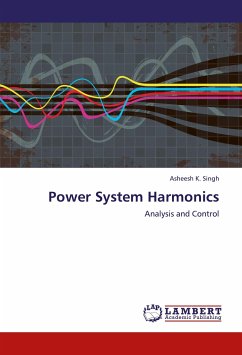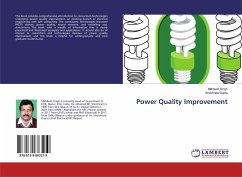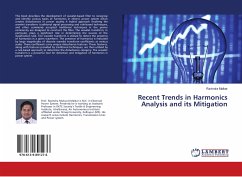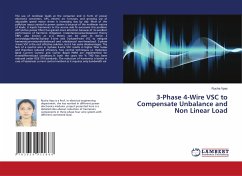The conventional transmission systems had the alternators loaded with linear load. The analysis of the synchronous machines in these systems is done with the help of conventional two-axis theory. Because of the several advantages of the H.V.D.C. system, D.C. transmission is gaining popularity throughout the world. Due to switching action of the convertor and the inverter, the alternators of such systems experience a non-linear load. Due to this, harmonics are introduced in the line currents of alternator, which have their own effects. This work explores the effects of harmonics,produced due to power switching devices,on the operation of synchronous generator. An attempt is made for experimental verification, validated by theoretical calculation,of the effects of harmonics in power systems
Bitte wählen Sie Ihr Anliegen aus.
Rechnungen
Retourenschein anfordern
Bestellstatus
Storno

